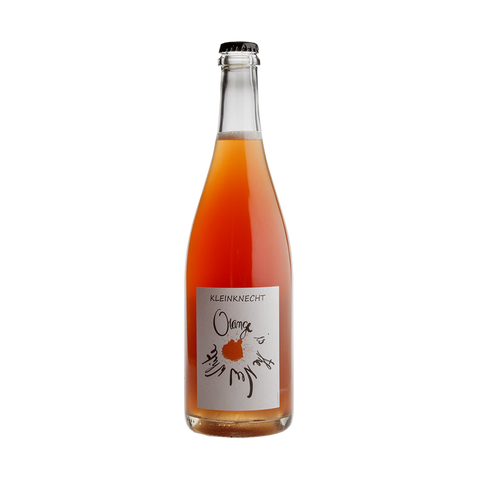What is Orange Wine? Everything you need to know.
What Is Orange Wine? Everything you need to know.
Orange wine, also known as amber wine or skin-contact wine, is a color of wine produced by leaving the skins of white wine grapes to ferment with the juice instead of removing them - essentially making white wine in the same manner as red wine. Though there is no official designation for orange wine (it's a type of white wine), this style of winemaking produces a unique flavor as well as its striking color.

How Is Orange Wine Made?
To make orange wine, whole white grapes are crushed and then macerated (left to sit) with their skins and stems for as little as one week and up to one year. Eventually, winemakers separate out the fermented juice, at which point they may age the wine further.
This is the exact same process winemakers use to produce red wine. The only difference is the grape variety: Orange wine is made with white grapes, like pinot grigio (orange wine made with pinot grigio is known as ramato, or "auburn," in Italy); ribolla gialla, grown in Italy and Slovenia; and Georgian Rkatsiteli, one of the oldest grape varieties. Typically, these types of grapes would be made into white wine, a process that involves separating the grape juice from the grape skins before the fermentation process, which keeps the color light and tannin levels low.
Is Orange Wine a Natural Wine?
Orange wines have become associated with the natural wine movement since their high levels of tannins mean that the wine can be bottled without the addition of sulfur dioxide. The term "natural wine" lacks a clear definition, but natural wines are often unfiltered, contain no (or low levels of) additives, and are produced on biodynamic vineyards using traditional wine production techniques. Many orange wines fall under this umbrella, but certainly not all.

What Does Orange Wine Taste Like?
Some orange wines taste like a light red wine, while others taste more like a sour beer. There's just as much variation between orange wines as there is between wine varieties of any other color. In general, orange wines are fuller-bodied than white wines. Orange wine tends to have a lot of tannins, which make the wine more bitter. Common tasting notes for orange wines include dried flowers or hay, stone fruits like apricot, and dried fruit.
When choosing an orange wine, ask your sommelier, bartender, or shopkeeper about the length of skin contact (less time on the skins yields a lighter wine, while more time means a fuller-bodied wine), the grape variety, and the fermentation vessel (qvevri-fermented wine might have a more earthy flavor than wine fermented in steel tank).
How to Pair Orange Wine Pair With Food?

